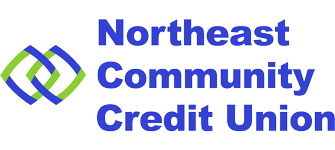Important Scam Warning: Don’t Find Yourself on The Hook
URGENT ALERT: Do YOU want to pay back thousands of dollars somebody else stole? You may find yourself on the hook with law enforcement, FBI, or the IRS. Here’s how it typically happens:
- A new ‘friend’ you met online or by phone or email, after getting to know you, asks you for a favor…
- He tells you he has ‘an inheritance’ or ‘grant money’ or ‘wants to come meet you’, but is having some sort of difficulty accessing his money or getting his check cashed to get the funds.
- He says he’ll send you the money electronically so you can actually see it in your account & can then send it to him by transfer, mail, or UPS.
- You give him your account # so he can send the funds to you, agreeing to help him out since he’s having such a problem.
- He may say you can keep a little of the money for ‘your concern’ (usually around $500 to $1000).
- For example, a $5,000 direct deposit goes into your account, but the cashier checks you’re told to send him total only $4,500.
- You think to yourself, “Where’s the harm? I’m just helping someone out who’s having a tough time. And I’ll get $500 for myself, for doing nothing!”
- So you check your account history at the credit union a couple days later and see that the money he sent has reached your account – perhaps $thousands$!
- When you see your new balance, you’re a little skeptic because after all, this is a person you’ve gotten to know online or by phone but have never seen in person. But, you think you can’t be held responsible if it does turn out to be something shady, right? (WRONG!)
- So after the money shows up in your account, you come to the credit union and withdraw a couple of cashier checks, made payable to him or to someone else – he may say it’s for a friend he’s buying something from or for an acquaintance who’s paying for supplies or fees – he may even give you a sad story to go along with his request.
- Little did you know, he hacked an innocent victim’s account somewhere, stole the account information, and STOLE the money from the victim’s account to divert it to YOUR credit union account so that you would willingly send it to him. This happens every day and it starts first with you falling for a stranger’s story & giving out your account information, and secondly by thinking you’d get to keep $500 for doing nothing. IF IT SOUNDS TOO GOOD TO BE TRUE, IT USUALLY IS.
FACT: Your new friend STOLE the money he/she sent to your account by hacking an innocent victim somewhere. The rightful owner will eventually contact the police, FBI, and perhaps the IRS when the money disappears. The paper trail will lead to YOU – after all, YOU gave him your account number and allowed the money to go into YOUR account. YOU pulled the money out & shipped most of it by cashier check, money order, or cash to where the hacker (your new ‘friend’) instructed you to. YOU withdrew the funds and YOU are now responsible – it doesn’t matter if you kept a little of it or none of it; you are now an accomplice to the crime and your name is on those withdrawals.
The rightful owner of the funds will proceed with legal action against both you and the hacker, who you mysteriously can no longer reach after the transactions are done…now you’re on the hook alone. Recently, one of our members, after being caught up in one of these scams and being investigated by law enforcement, provided FBI agents with his new ‘friend’s’ email address, photos, phone number, and copies of text messages. But the woman who had deposited money to his credit union account has seemingly disappeared. Our member is now on the hook for the $18,000 stolen from the real victim & sent to his credit union account electronically. He didn’t keep the money but is being considered by law enforcement as guilty of fraud.
This is sometimes known as a type of Sweetheart Scam. YOU are not considered the victim in this – you willingly gave someone your account information so he or she could deposit money, you willingly followed instructions to withdraw the money and mail or deliver it. You are no longer in possession of the money, yet you are liable for the theft of thousands of dollars. Is it worth being sued or facing jail time? Please – ASK yourself this before giving out your account number or trusting a sad story from a stranger.
If you have questions about this or other suspicious activity, please call the NCCU Fraud Department immediately at (423) 547-1232 at our main office on 980 Jason Witten Way, Elizabethton.
